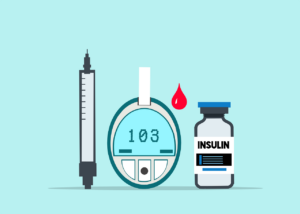 Qualifying for SSDI with Diabetes Complications
Qualifying for SSDI with Diabetes Complications
If you’re wondering how to get disability for diabetes complications, you’re not alone. Diabetes can lead to debilitating complications that severely impact your ability to earn a living.
When that happens, it may be time to consider applying for Social Security Disability Insurance (SSDI).
While diabetes itself may not always qualify for SSDI benefits, the complications caused by diabetes often do. Let’s explore how diabetes complications can qualify you for SSDI and how an experienced disability lawyer can help you build a strong case.
How Diabetes Complications Qualify for SSDI
The Social Security Administration (SSA) doesn’t automatically approve SSDI benefits for diabetes alone. However, many people with diabetes develop serious complications that significantly limit their ability to work. These complications can include:
Neuropathy (Nerve Damage)
Diabetes can cause peripheral neuropathy, leading to numbness, pain, and weakness in the hands and feet. Neuropathy can make it difficult to walk or perform manual tasks.
 Retinopathy (Vision Problems)
Retinopathy (Vision Problems)
Diabetes is a leading cause of blindness. Severe vision loss or impairment can prevent you from performing jobs that require reading, computer use, or other tasks dependent on good vision.
Kidney Disease
Diabetes can lead to chronic kidney disease, including end-stage renal disease, which often requires dialysis or a kidney transplant. These conditions can make full-time employment impossible.
Cardiovascular Disease
Diabetes increases the risk of heart disease, heart attacks, and strokes, which can severely impact your physical capabilities and endurance.
Amputations
In extreme cases, diabetes can lead to poor circulation and severe infections that lead to limb amputation. This can drastically affect a worker’s mobility and the ability to earn an income.
To qualify for SSDI, these complications have to be severe enough to prevent you from working for at least 12 months or be expected to result in death. Diabetes complications can certainly lead to this level of disability.
 Proving Your Disability to the SSA
Proving Your Disability to the SSA
To qualify for SSDI with diabetes complications, you need to provide strong medical evidence that proves your condition limits your ability to work. This may include:
- Medical records detailing your diabetes diagnosis, treatments, and complications.
- Documentation of hospital stays and treatments for conditions like kidney disease, heart disease, or infections.
- Specialist reports from doctors treating your complications, like endocrinologists, nephrologists, or neurologists.
- Test results, including blood sugar levels, A1C levels, nerve conduction studies, vision tests, and kidney function tests.
The SSA will also evaluate how your complications affect your daily activities and work abilities. It’s important to show how your condition prevents you from doing the kind of work you used to do – whether that’s standing for long periods, using your hands, or focusing on detailed tasks.
 The Challenges of Qualifying for SSDI with Diabetes Complications
The Challenges of Qualifying for SSDI with Diabetes Complications
Even with severe complications, qualifying for SSDI isn’t always easy.
The SSA has strict criteria and requires detailed documentation to prove your condition truly prevents you from working. They deny the majority of initial claims, usually because the SSA doesn’t see enough evidence in the application that the complications are disabling.
In addition, diabetes complications can be progressive. That means they may not have reached the severity needed to qualify for SSDI when you first apply. But then it might get worse. That’s why the SSA needs clear and consistent medical documentation showing your condition is expected to last for at least 12 months.
We recently helped a client who’d applied on her own and constantly been denied. She didn’t attach enough proof through documentation to convince the SSA she qualified for her severe diabetes complications.
Our attorneys help people figure out what went wrong with their application and fix it. So as soon as she came to us, we were easily able to prove her case to the SSA and even got her benefits expedited.
How an SSDI Lawyer Can Help
Navigating the SSDI process can be overwhelming, especially when you’re dealing with diabetes complications. Having an experienced SSDI lawyer by your side can greatly improve your chances of success.
Here’s how we can help:
 Gathering Medical Evidence
Gathering Medical Evidence
We’ll work with you and your doctors to gather detailed medical records, specialist reports, and test results that clearly show how your diabetes complications limit your ability to work.
Building a Strong Case
We know what the SSA looks for in diabetes-related claims and will make sure your application meets the required criteria, and we’ll explain to you what’s missing if and when we find problems.
Filing Appeals
If your claim is denied, we’ll guide you through the appeals process, representing you at hearings and fighting for the benefits you deserve.
 Working with Us to Get Disability for Diabetes Complications
Working with Us to Get Disability for Diabetes Complications
As an experienced Memphis SSDI lawyer, I understand how devastating diabetes complications can be and how they can impact your ability to work.
Our firm is dedicated to helping you navigate the SSDI process and securing the benefits you need. We make it our job to help you get the support for your continued health and livelihood.
We fight for you every step of the way. And we don’t make anything unless and until we win for you – even then, it’s just a small fraction of your past-due benefits, so you keep every dollar moving forward.
If you’re struggling with diabetes complications and need help applying for SSDI, contact us today for a free consultation. Let us help you build a strong case and get the benefits you need.
